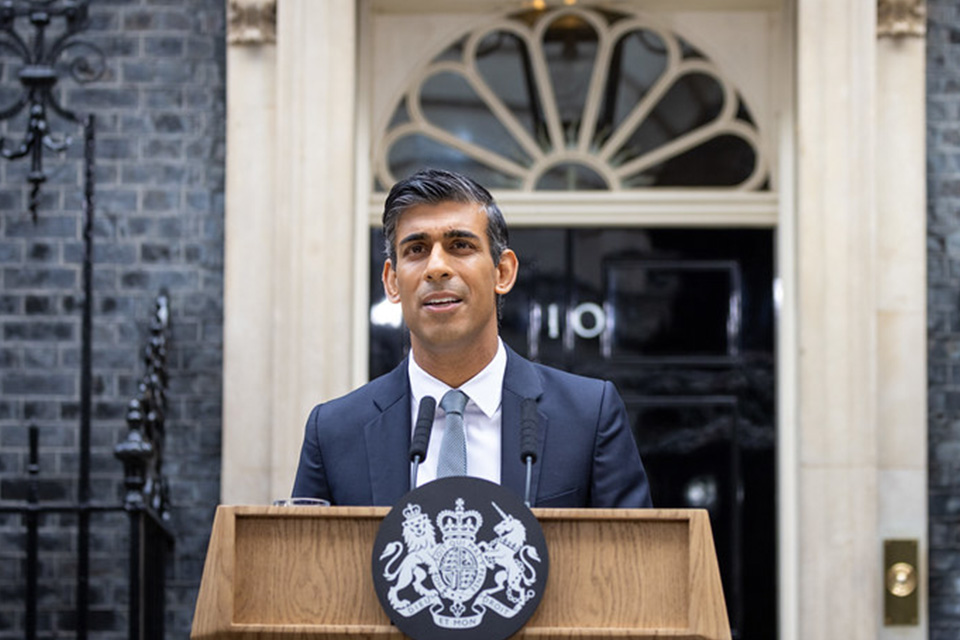By Ana Hepburn, History, Third Year
On the brink of a general election, the Conservative Party conference of 2023 could not have come at a better time. Discussions of new, supposedly improved, potential policies vividly circulated as the Tory MPs set up for debate at the conference in Manchester last month. Comments from a range of party members, equal measure supportive and critical of the Conservative direction, assisted in shedding light on whether the general consensus saw the party as surviving the political turmoil of the past 5 years. In discussing the policies laid out at the conference, I consider whether failure is inevitable, or whether redemption could secure the Conservatives a successful re-election.
Tax cuts:
Senior Tory MPs have frequently discussed plans to cut taxes in order to boost economic growth. On the second day of the conference former PM Lizz Truss spoke on her vision of the economy, arguing for the need to ‘unleash business across Britain’ by reducing corporate taxes. Putting further pressure on Chancellor Jeremy Hunt to make good on demands in his Autumn statement, by putting corporation tax back ‘down to 19%’ as it is ‘free business’ that Truss believes will achieve economic growth. With the current cost of living crisis, re-stabilising the economy is inevitably a core focus of the Conservatives, if they wish to hold any chance at achieving a re-election.
Reduce Immigration:
The long-debated argument of immigration levels to the UK has left many Tory MPs viewing levels of immigration as ‘too high’. However conservative intentions of a reduction in net migration are viewed by several MPs as having failed. As 606,000 people migrated to the UK in 2022 – noted as the highest on record. Suggestions from the former cabinet minister Sir Jacob Rees-Mogg, and MP Tom Hunt included halving the number of visas awarded to migrant workers, international students, and their families. Hunt finished his stance by stating "Ultimately, we do believe that the student route has been abused by some as a backdoor to the country". A controversial, and potentially damaging policy that could seriously impact voting patterns, especially amongst young people.
Education
Several new policies focused on the improvement of the prospects for 16-19-year-olds were introduced. Focusing majorly on plans to merge A-levels with T-levels, in forming a new advanced British standard qualification.
Cancellation of the HS2 Project
Following weeks of discussion as to the future of the HS2 project, Rishi Sunak announced the northern leg of the project is being cancelled. A major decision as the project held the title of potentially being the biggest infrastructure project in Europe. Sunak promised the money saved would be reinvested into alternative local transport improvements. Yet for many Sunak’s promises were not enough, as Northern MPs called for funds to be refocused on connecting the Northwest to the Northeast, rather than to the South.
The Green Belt
Amidst a housing crisis, the importance of maintaining the ‘Green belt’ was discussed. With so many people struggling to find homes, many questioned whether the decades-long ideal remained realistic. MP Brandon Lewis added: "We also need to be honest and open about the fact that the green belt, like everything over the last hundred years roughly, needs to be reviewed and changed."
Regulation of AI
With the rise of artificial intelligence globally, anticipation as to its impacts was discussed with both confidence and angst. Sunak placed his support behind the UK’s engagement with AI as he asserted his belief it would lead to a source of major economic growth. However, many expressed fears of potential political, economic and social risks of the new technology, and the need to put regulations in place to ensure all is protected. Sunak’s more recent ‘killer robot’ summit at Bletchley Park seems by many to have been a surprise success on the same subject, as he teamed up with Kamala Harris and Elon Musk.
Smoking Ban
The PM set out plans to end smoking by raising the legal smoking age. Under the plan, the age of sale would rise from 18 every year, meaning anyone presently aged 14 and under will never be able to make a legal purchase of cigarettes.
However, the question is: Does this conference suggest the conservative party is doomed to fail? And is there a possibility of winning a re-election?
Throughout the conference discussions of Sunak’s future as party leader was openly debated, with many contemplating his near departure, and potential successors. For some, doubts went as far, as to contemplate a conservative loss overall in the next general election. Thus, begs the question as to whether, in an increasingly liberal society, the previously discussed policies are going to be both accepted and upheld by the next generation of voters.
Ultimately, the political chaos and instability that has been the British government for the last five years, has left many voters wary of a repeat conservative government. As recorded in the latest polls, the conservatives trail the Labour Party by 18 points, a gap large enough to give Sir Kier Starmer sufficient reason to expect success in the next election. Unfortunately for the conservatives, years of scandal, instability and a cost of living crisis, have ransacked all aspects of our economy, including the NHS. Leaving a very large, and likely window for the Labour Party to take over. It is now just a question of when that next election will be – as discussions from the conference would suggest Sunak is very much aware that his term is coming to an end.
Featured Image: Selcuk Sofular/Flickr
Do you think a re-election is possible for the Conservative Party?









